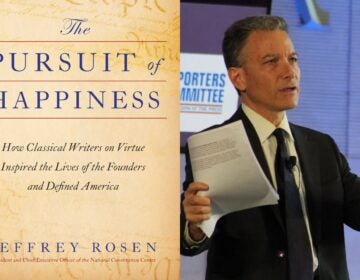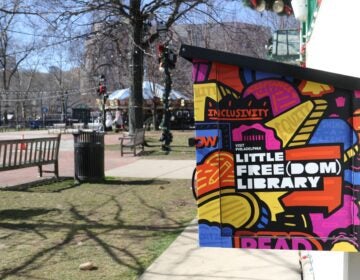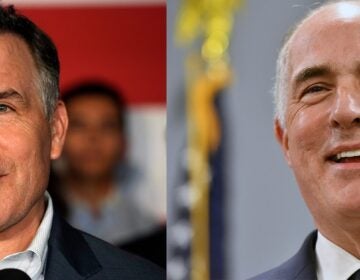Presidential order Lincoln signed in ‘final hours of his life’ recently found after being locked in desk for decades
The Raab Collection of suburban Philadelphia is asking $45,000 for the 1865 letter signed by a president “who had no idea his days were numbered.”
Listen 2:08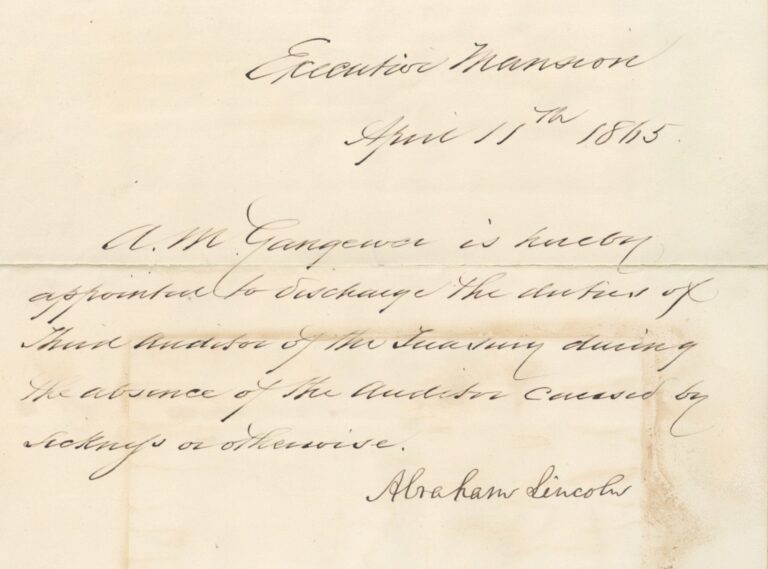
President Lincoln signed the appointment letter four days before he was assassinated. (Courtesy of the Raab Collection)
From Philly and the Pa. suburbs to South Jersey and Delaware, what would you like WHYY News to cover? Let us know!
The date was April 11, 1865. Two days earlier, Confederate Army General Robert E. Lee surrendered to the Union forces in Virginia.
With the Civil War all but over, President Abraham Lincoln busied himself with rebuilding the federal government and reuniting his bloodied, fractured nation.
That day, Lincoln’s work included the appointment of a fellow anti-slavery advocate to a Treasury post, signing other documents, and standing in a hallway window of the White House to deliver a 10-minute speech that focused on the coming process of reconstruction.
“We meet this evening not in sorrow, but in gladness of heart,’’ the president told about 3,000 people assembled on the lawn. “A call for a national thanksgiving is being prepared, and will be duly promulgated.”
Four days later, Lincoln was dead, felled by an assassin’s bullet.
Since his murder 159 years ago, scholars and history buffs have painstakingly chronicled Lincoln’s final days, and institutions and private collectors have clamored for documents bearing his signature during that momentous time.
To that end, Lincoln’s original April 11, 1865, letter appointing Allen M. Gangewere to a federal auditing post was recently discovered. A woman found the Lincoln letter while sorting through her late husband’s papers in his old writing desk, where the folded sheet of paper had been locked for decades.
Under the letterhead “Executive Mansion,” Lincoln had written one simple sentence: “A.M. Gangewere is hereby appointed to discharge the duties of Third Auditor of the Treasury during the absence of the Auditor caused by sickness or otherwise.”
Underneath was the famous, cherished signature.
Gangewere was a founder of the National Colored Home, established in the nation’s capital to relieve the suffering of destitute fugitive slaves. Gangewere had run an anti-slavery weekly newspaper in Columbus, Ohio, and later was private secretary to Ohio Gov. Salmon Chase, who became Lincoln’s Treasury secretary during the war.
While a copy of Gangewere’s appointment exists in the National Archives, the original had long been thought to have been lost to history.
Now it’s being offered for sale by the Raab Collection in Ardmore, Pa., which is asking $45,000.
The Raab organization researches, buys, and sells documents of prominent historical figures, including U.S. presidents such as Lincoln, George Washington, Thomas Jeffeson, and John F. Kennedy, as well as luminaries such as Napoleon, Amelia Earhart, Winston Churchill, Albert Einstein, and Stephen Hawking.
Nathan Raab, president of the collection, said Gangewere likely kept the original, and after his death, others took ownership of it. He said the woman who discovered it lived in the “upper Midwest” but would not disclose any other details because he promised her anonymity.
Raab timed the announcement to coincide with President’s Day, and told WHYY News the timing of the letter makes it more valuable.
“What makes this sort of haunting is that he was going about his life,’’ Raab said of Lincoln. “Obviously this was an exciting period for him, for the country, because the war appeared to be coming to an end and in fact was coming to an end.

“And what he feared would take place did not take place. He kept the union together and his legacy lives on to us today. But what you are looking at in this is he obviously had no idea that his hours were numbered. I mean you could measure his life at this point in hours.”
Raab said most original documents bearing Lincoln’s signature are held in institutions and not offered for sale to the general public.
“So the ability to actually own or buy something that Lincoln signed in the final hours of his life is an exciting moment for a collector who loves Lincoln,” Raab said. “It’s obviously a poignant moment because we all know now what happened to him just days later.”
Treasury appointee was ardent anti-slavery advocate
Raab also said the appointment of an anti-slavery advocate such as Gangewere to the federal bureaucracy indicates the direction the president wanted for the United States.
“We certainly see him raising the platform and stature of people who had his beliefs on slavery,’’ Raab said.
Daniel Worthington of the Abraham Lincoln Presidential Library and Museum in Springfield, Illinois, agreed that the Gangewere’s anti-slavery stance makes the appointment — and the letter — more significant.
“Documents like this, where you have a story or a person is someone who is, in this particular case a person who’s involved in this anti-slavery movement, that does add historic value to it,’’ Worthington said. “Now, whether it adds monetary value to it is again up to the people who buy it.”
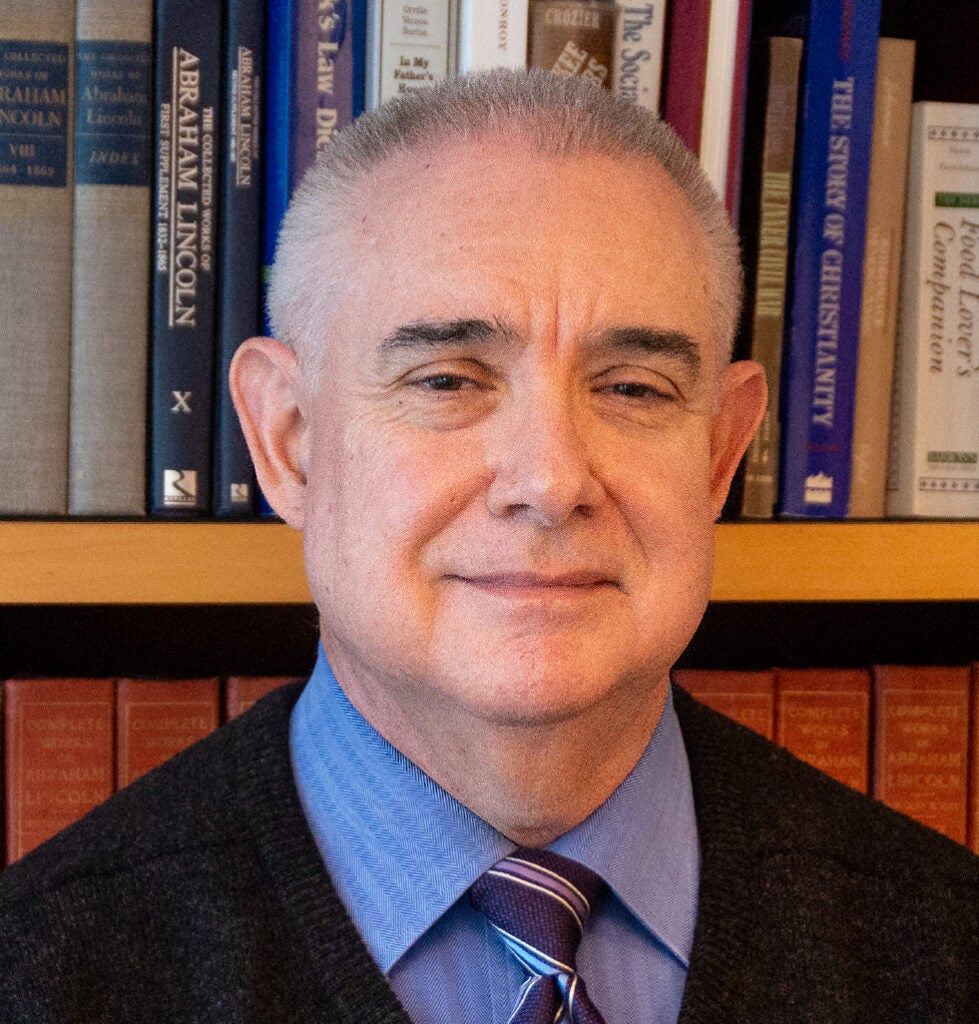
Worthington notes that the letter shows Lincoln simply “doing what many people would consider to be day-to-day mundane work, but absolutely essential to the running of the federal government, during the Civil War. And that’s making sure that positions are filled. The Treasury is of course very important for paying bills and for auditing.”
Worthington, director of the museum’s Papers of Abraham Lincoln, differentiated the letter from ones Lincoln wrote to friends and acquaintances, in which he signed his first name as simply “Abe.”
In formal documents, “he always signs his full name,” Worthington said. “So it is important in that sense. It’s an official document. It’s not a personal letter or a political letter. This is more of what he does as part of his official duties as the chief executive and of course as the commander in chief.”
Worthington also pointed out that John Wilkes Booth attended the speech Lincoln delivered on April 11, 1865, and the actor-cum-assassin became incensed when Lincoln suggested giving the vote to Black soldiers who fought for the Union Army.
“That was the catalyst for Booth saying that Lincoln has to die,’’ Worthington said
Booth shot Lincoln in the back of the head four nights later at Ford’s Theater after sneaking into the presidential box.
During the week before he was gunned down, Worthington said, the president had pivoted to issues of reconstruction, and likely signed hundreds of letters in his final days.
“He is actively involved in the business of government all the way up until he probably walks out the door to go to Ford’s Theater that night,’’ Worthington said.
The bottom line, Raab said, is that the letter represents one of the final acts of perhaps the most consequential president in American history.
“To own one of the last things that Lincoln touched in the waning days of his life,” Raab said, “you just don’t get that opportunity every day.’’
WHYY is your source for fact-based, in-depth journalism and information. As a nonprofit organization, we rely on financial support from readers like you. Please give today.



